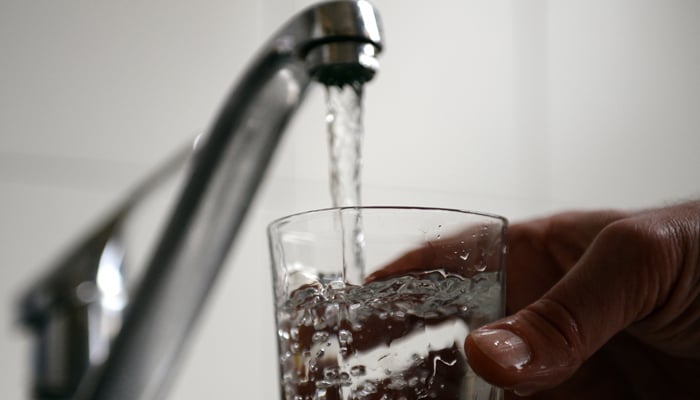Safe drinking water crisis
Rawalpindi: Rawalpindi is facing a widespread crisis of safe drinking water these days. The ongoing dengue outbreak apparently involves clean water mixed with the dreadful vector or larvae of the mosquito called Aedes.
“The clean water people are used to drinking outside the home or workplace remains in most cases filled with bacteria, the pathogens of myriad water-borne diseases. The apparently clean or transparent water might turn out to be highly deceptive,” says Amjad Ali.
“Water-related cases these days are commonplace. During the summer days, drinking glasses of raw sherbets prepared with ice-mixed water at the roadside is a common spectacle. Few bother to think if these soft drinks are safe to drink,” says Sarmad Abbas.
“The hygienic practice is to drink water after boiling it for a specific time at home. A number of households do not boil their water for a specific length of time. Thanks to the rising domestic gas tariff, many fixed-income families skip the mandatory boiling of water. Stomach upsets, and mild to severe intestinal cramps continually plague these families,” says Arman Zaidi.
“For skipping regular boiling of water, many cite the dominant reason for gas price. Water purifiers are a pipedream to the lower-middle class. These families are normally among those badly affected by the scarcity of safe water,” says Adel Hussain. “About the drinking water situation, many would feel like singling out the seasons of summer and monsoon as the worst ones. In many areas in the old city, and a few zones in other parts, summer witnesses paucity of drinking water as a seasonal woe. Most of the water taps remain dry throughout the summer,” says Behrouz Naqvi.
“The disadvantaged people cannot depend on the private water tankers. Because these tankers prove too costly. In many areas, heated fights around public taps are a common spectacle,” says Ehsan Hasan. “The groundwater level is dropping fast in the city. The water depletion is due to the reckless urbanization, i.e. construction of high-rise buildings in all parts of the city. As the settlements spread to all directions of the city, the drop in water level gains speed thanks to pumping,” says Farid Ali.
“A large volume of the water supply falls victim to the scourge of water-logging in Monsoon. Thanks to submerging in the monsoon rainwater for a long period, the water-carrying pipes allegedly develop cracks. This enhances the risks of the supply water’s contamination in the city,” says Ferouz Hasnain.
Mansoor Mehdi says, “Apart from the aged supply pipes, the authorities’ regular maintenance of the water lines appear to have developed laziness. It adds to the miseries of the city residents, long afflicted by the many-faceted crises related to water supply. In spite of all these hurdles, growing public awareness of potable water is the key to the weathering of all crises.”
-
 Lana Del Rey Announces New Single Co-written With Husband Jeremy Dufrene
Lana Del Rey Announces New Single Co-written With Husband Jeremy Dufrene -
 Ukraine-Russia Talks Heat Up As Zelenskyy Warns Of US Pressure Before Elections
Ukraine-Russia Talks Heat Up As Zelenskyy Warns Of US Pressure Before Elections -
 Lil Nas X Spotted Buying Used Refrigerator After Backlash Over Nude Public Meltdown
Lil Nas X Spotted Buying Used Refrigerator After Backlash Over Nude Public Meltdown -
 Caleb McLaughlin Shares His Resume For This Major Role
Caleb McLaughlin Shares His Resume For This Major Role -
 King Charles Carries With ‘dignity’ As Andrew Lets Down
King Charles Carries With ‘dignity’ As Andrew Lets Down -
 Brooklyn Beckham Covers Up More Tattoos Linked To His Family Amid Rift
Brooklyn Beckham Covers Up More Tattoos Linked To His Family Amid Rift -
 Shamed Andrew Agreed To ‘go Quietly’ If King Protects Daughters
Shamed Andrew Agreed To ‘go Quietly’ If King Protects Daughters -
 Candace Cameron Bure Says She’s Supporting Lori Loughlin After Separation From Mossimo Giannulli
Candace Cameron Bure Says She’s Supporting Lori Loughlin After Separation From Mossimo Giannulli -
 Princess Beatrice, Eugenie Are ‘not Innocent’ In Epstein Drama
Princess Beatrice, Eugenie Are ‘not Innocent’ In Epstein Drama -
 Reese Witherspoon Goes 'boss' Mode On 'Legally Blonde' Prequel
Reese Witherspoon Goes 'boss' Mode On 'Legally Blonde' Prequel -
 Chris Hemsworth And Elsa Pataky Open Up About Raising Their Three Children In Australia
Chris Hemsworth And Elsa Pataky Open Up About Raising Their Three Children In Australia -
 Record Set Straight On King Charles’ Reason For Financially Supporting Andrew And Not Harry
Record Set Straight On King Charles’ Reason For Financially Supporting Andrew And Not Harry -
 Michael Douglas Breaks Silence On Jack Nicholson's Constant Teasing
Michael Douglas Breaks Silence On Jack Nicholson's Constant Teasing -
 How Prince Edward Was ‘bullied’ By Brother Andrew Mountbatten Windsor
How Prince Edward Was ‘bullied’ By Brother Andrew Mountbatten Windsor -
 'Kryptonite' Singer Brad Arnold Loses Battle With Cancer
'Kryptonite' Singer Brad Arnold Loses Battle With Cancer -
 Gabourey Sidibe Gets Candid About Balancing Motherhood And Career
Gabourey Sidibe Gets Candid About Balancing Motherhood And Career




